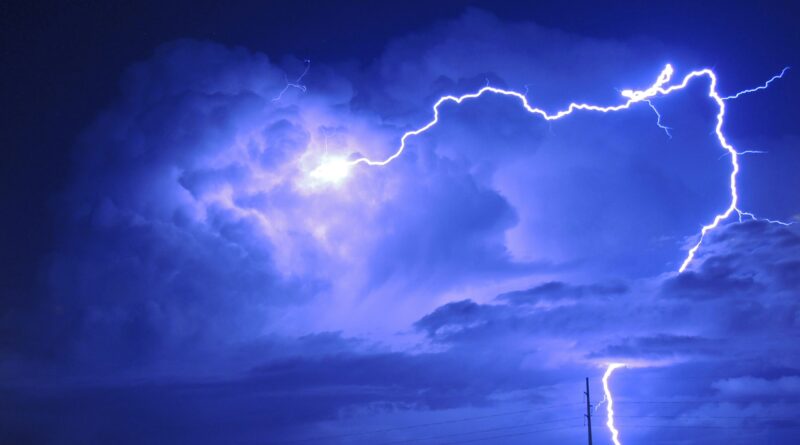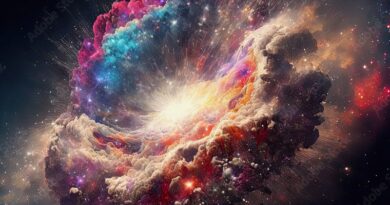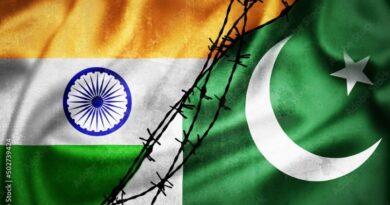Unveiling the Perfect Storm: Intersecting Forces of Chaos and Consequence
In ancient times, amidst the narrative of the Indian epic Mahabharata, disparate stories with a varied case of characters end up on the battlefield of Kurukshetra, purportedly claiming the lives of most of humanity. Fast forward to modern times, and the unfolding events around the globe seem to echo a similar tale of impending upheaval arising out of politics, power and greed. Analyzing these events paint a grim picture of a brewing storm pushing us towards a trajectory of chaos, anarchy and unrest.
Looking at some of the current events at play:
Climate Change
The reality of climate change is irrefutable; I am not arguing what is causing it but highlighting the fact of its role in the impending crisis. The planet is undergoing profound shifts in weather and temperature patterns. Record breaking temperatures are experienced in numerous regions, altering migration routes, acidifying oceans and disrupting rainfall patterns. These changes pose a threat to fresh water supplies, hydroelectric dams, and disrupt the lifecycles of plants and animals. The effects of this are starting to be felt around the globe.
Immigration
The issue of immigration has become increasingly contentious worldwide, fueling the rise of far-right sentiments. Climate change exacerbates immigration challenges as extreme weather events cause droughts and floods, causing populations to relocate leading to intensifying conflicts over essential resources. There is also economic strife in certain areas thanks to hundreds of years of colonization of Asia and Africa by Europeans leading to hardships of epic proportions. People are migrating to stable nations in search of a better life. In times of scarcity, this is escalating hostility towards immigrants further complicates an already volatile situation.
Rise of Right Wing
A global trend towards right-wing politics is evident, with voters gravitating towards candidates who challenge established liberal institutions. From the Netherlands to Argentina, and from India to the United States, leaders with nationalist agendas gain traction, often at the expense of democratic norms. The ascent of personalities like Milei in Argentina and Meloni in Italy, along with the resurgence of right-wing parties across Europe, signals a concerning shift towards authoritarianism. Meloni’s ruling party, The Brothers of Italy has been described as the most right of center party since Mussolini. As per Amnesty International, her policies seem to undermine democratic norms like right to peaceful protest. She has also introduced stricter policies for immigration.
In Poland and Hungary, democratic foundations remain fragile as hard-line factions steadily gain influence. Similarly, in France, the rise of the ultra-right-wing party led by Marine Le Pen marks a significant shift in the political landscape. Scandinavian countries like Sweden and Finland are witnessing the gradual ascent of ultra-right-wing movements, while Germany, Austria, Belgium, and Switzerland also see a surge in such ideologies.
Many of these movements are heavily centered around charismatic personalities, often resembling cult-like followings. However, the potential consequences of these movements are brought into question when these central figures pass away. Without robust institutional frameworks in place, the aftermath of their leadership remains uncertain. Some far-right movements cloak themselves in rhetoric about immigration reforms or nationalism, while others openly espouse racist ideologies.
While instances of thwarted power grabs by extreme right-wing elements have occurred in France and Brazil, the overall trend suggests a steady rise in such movements globally. Currently, these movements appear to thrive, and the countries under their influence may seem stable. However, the true ramifications of their ascent may only become apparent decades later.
Drawing parallels to historical precedents like Nazi Germany, where a sense of nationalism and pride initially flourished alongside advancements in industry and technology, serves as a sobering reminder. Despite relative prosperity, there is a palpable atmosphere of heightened polarization and anti-immigrant sentiments. This phenomenon warrants closer examination by social scientists as anger levels rise and societal divisions deepen despite the world being richer and safer than ever before (relatively speaking).
Artificial Intelligence
The rapid advancement of AI presents its own set of challenges. While AI holds promise for various industries, its unregulated development raises concerns about job displacement and societal division. The impacts of such development, even though local, will reverberate throughout humanity, perhaps, not in a good way. The unequal access to AI technologies perpetuates economic disparities and threatens social cohesion. Moreover, the potential for AI to make critical decisions, such as those faced during historical crises, remains uncertain. AI is likely being used in nuclear facilities doing great work but can it analyze and go by gut feeling like John F. Kennedy did during Cuban missile crises that averted WWIII? How can it respond to a false alarm that went off in 1983 falsely alerting Russian forces that US had launched several ballistic missiles towards Russia? It was sheer gut feeling by the base commander that kept Russia from firing its nukes in retaliation.
Social Media
The proliferation of disinformation on social media platforms exacerbates societal polarization, creating echo chambers that reinforce extreme viewpoints. The erosion of diverse perspectives hampers intellectual growth and fosters ideological divides, undermining social cohesion.
Nowadays, it’s possible to subscribe exclusively to forums and discussions that echo and validate only your viewpoint. You can even curate your social circle to exclude those who disagree with you. However, this fosters an echo chamber effect, limiting exposure to diverse perspectives necessary for emotional and intellectual growth.
Military Build Up
Global defense spending is on the rise, fueled by geopolitical tensions and recent conflicts such as the Russo-Ukrainian and Israeli-Palestinian wars. countries are increasingly arming themselves with conventional and nuclear weapons. After providing military assistance, countries like Poland are no longer supporting Ukraine with armament but building their own arsenal. Countries are arming themselves in response to perceived threats, further escalating the risk of armed conflict and nuclear proliferation Stockholm International
Peace Research Institute (SIPRI) reported upwards of $2.2 trillion in global defence spending in 2023 which is up by a whopping 9% from the year before. Off course 56% of it was jointly spent by US, China and Russia followed by India. SIPRI reported that countries with the sharpest increases included Finland, Lithuania, Poland & Sweden. This is likely to increase in the coming years.
These might be in reaction to the Russo-Ukrainian wars but coupled with losses during COVID-19 pandemic, we have a budget riddled with deficits and shortfalls in other sectors causing economic crises leading to more unrest around the world.
Conclusion
The convergence of these factors portends a bleak future characterized by mass migration, resource scarcity, economic instability, and geopolitical conflict. The absence of concerted action to address these challenges suggests that humanity is hurtling towards catastrophe. Despite historical precedents and warnings, the inertia of entrenched interests and geopolitical rivalries hinder meaningful change. As the forces of destruction gather, reminiscent of the battleground of Kurukshetra, the prospect of salvation appears increasingly elusive. In this narrative, there are no divine interventions or heroic figures capable of averting disaster or coming to the aid of Draupadi as people are attempting to molest her in midst of the court. Instead, humanity finds itself at the mercy of its own folly, confronting the harsh reality of its impending demise. Whether this impending battle heralds humanity’s reckoning or its salvation remains uncertain, but the stakes could not be higher.




